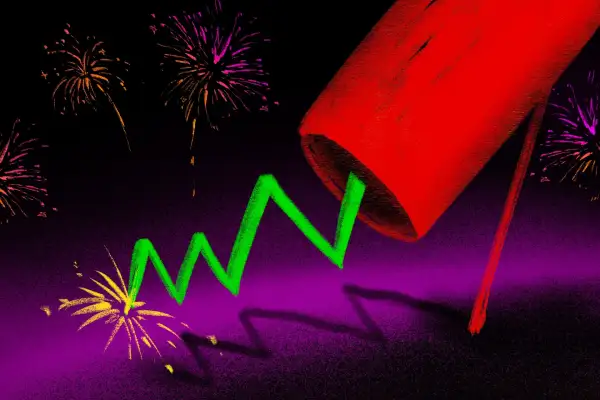July Is Historically a Good Month for the Stock Market. Will That Hold True in 2024?
Money is not a client of any investment adviser featured on this page. The information provided on this page is for educational purposes only and is not intended as investment advice. Money does not offer advisory services.

The S&P 500 finished the first half of the year with an impressive 15% gain, and forecasts for the remainder of 2024 remain bullish. Historic trends may give investors reason to be hopeful the rally continues this month in particular.
July is historically one of the best-performing months of the year for the stock market. According to Dow Jones Market Data, since 1928, the S&P 500 has posted an average gain of 1.7% this month, finishing in positive territory 60% of the time.
July's track record for the Dow Jones Industrial Average is even more impressive, having finished with a gain 65% of the time going back to 1897.
However, given the current market environment, numerous factors could pose a challenge to that historical track record this July.
The market's concentration in big tech stocks
July isn't as impressive when it comes to the tech-heavy Nasdaq Composite. Dow Jones Market Data shows that since 1971, the Nasdaq has posted gains of less than 1% during July, making it the sixth best monthly performer of the year.
Market concentration is another growing concern for both individual monthly performances and overall performance. In late June, the Wall Street Journal reported that 30% of the S&P 500's first-half gains were attributed to Nvidia, the semiconductor manufacturer that's seen its stock skyrocket over the past 18 months on the back of the AI-propelled frenzy.
Nvidia, which trades on the Nasdaq and is the third largest company in the S&P 500, is a prime example of how that market concentration can skew the perception of monthly results.
Because the S&P 500 is weighted by market capitalization, the largest companies' performances have an outsized effect on how the index appears to be broadly operating. Factset reported in late April that during the first quarter of 2024, five companies — Alphabet, Amazon, Meta Platforms, Microsoft and Nvidia — saw year-over-year earnings growth of 64.3%, while the remaining 495 companies in the S&P 500 posted year-over-year losses totaling -6%.
With the major indices not as diversified as some may believe, if any of the top companies falter in July, it could have a disproportionate impact on overall market performance. Your portfolio could suffer as a result, at least in the short run.
Are stocks overvalued?
With corporate profits and the major indices all hovering around record highs, there's speculation about stock overvaluation with numerous indicators suggesting the market is pushing farther into overbought territory. This could serve as a prelude to a pullback that would see prices fall as investors sell shares and secure profits.
One measure that's evidencing the market being overbought is the Relative Strength Index. RSI is a momentum indicator that determines whether equities and indices are overvalued or undervalued based on recent price changes. An RSI reading of 70 or more indicates something is overbought (or overvalued), while a reading of 30 or below indicates that it's oversold (or undervalued).
Typically, RSI readings of 70 or above or 30 or below suggest a looming price reversal. At the time of writing, the S&P 500 — which has established 32 all-time highs so far this year — is showing an RSI reading of 70.15 on its year-to-date chart and is trending upward.
If that reading remains above 70 for a sustained period of time this month, it could be followed by a sell-off that would put July's usually positive performance at risk.
Should investors be concerned?
For buy-and-hold investors, month-to-month noise should be ignored. Short-term volatility is not indicative of long-term price action, and analysts are in agreement that the second half of the year will see strong gains for the market.
According to LSEG data, the S&P 500 is forecast to rise 10.4% during the remainder of 2024, which would result in a full-year gain of 25.4%. That figure would best last year's 24.23% gain and would more than double the index's average annual return of 10.5% since 1957.
Hindsight may be 20/20, but it isn't a reliable gauge of market projections. In other words, July's previous performances offer no reliable indication of where stocks are heading now. As Warren Buffett once quipped, "If past history was all there was to the game, the richest people would be librarians."
More from Money:
Can AI Tools for Picking Stocks Help Investors Beat the Market?
5 Best Stock Trading Apps of 2024
Members of Congress Are Getting Rich Trading Stocks. Should That Be Illegal?

